“L
ittle Bird Piano Academy® and Baby-Led Piano® evolved out of an understanding that every child deserves access to music making.
I’m Miss Holly, owner and creator of Little Bird Piano Academy® and the Baby-Led Piano® method.
In addition to becoming a leader among piano teachers, I am an advocate for all children, for families at risk, and for kids and parents with special needs.
I grew up in a house full of musicians, which was fun, and ultimately, made my life sweet because music came easily to me. People told me I was gifted, or that it was in my genes, but really, I’ve found over a lifetime that I was gifted by what my family DID around me. I don’t know about the genetic component, but what I do know is that I teach babies from families who claim to not be musical, and THEY GET IT TOO!
As an accomplished pianist, composer and vocalist, and having seen the advantages being musical gave me and other kids who grew up that way, I wanted my kids to learn music from infancy. I taught them how to read at very young ages by using flashcards, and by reading to them often. I thought teaching my kids piano and music theory would be easy, but I soon realized I didn’t know where to start.
I received some training in the Pace piano method, a progressive method that I was privileged to learn during my childhood. This method was designed to teach kids starting at about age 7 or 8 how to read and write music, how to transpose, improvise, and how to play by ear. Since I had grown up with this method, I knew the advantages of having all of these skills rather than just pressing the keys according to the letter names on the staff.
Robert Pace taught music at Julliard and Teachers College. He was a genius, and his (also brilliant) wife created a few adorable books for younger kids, intended for 3-6 year olds.
I loved the training I received, and I used it to teach my own kids. I started to include some neighborhood kids, and my piano studio grew. Even though the method I was using had fantastic teaching methods and great ideas, the material was sparse, and required a lot of supplementation, especially for the younger kids. I began, every week, creating little tiny songs and games for my students. Each song and game had a specific intention for teaching very basic musical skills and concepts. And the kids loved them! Classes were really fun!
As the kids came back every week, I realized that 3-5 year olds don’t have the capacity to practice on their own. They aren’t developmentally ready to plan ahead or try to reach long term goals; they needed their parents to come to class with them.
I got over my fear of acting silly in front of adults, and invited moms, dads, and grandparents to attend with their toddlers and preschoolers. Very often, they brought a baby with them in a car seat. I was so happy the babies were coming, because I knew that babies are the fastest learners! The babies got more out of the classes than anyone! As time went on, these were the kids who WANTED to play the piano all the time, who readily understood the concepts, and could demonstrate their knowledge – when they were bigger.
I continued my research, and gained more experience through trial and error. My work became more focused and intentional about the babies, their parents and caregivers. I asked myself how I could break the concepts down even further, and make them more readily accessible to babies, and how I could teach the parents to understand how to better communicate with their tiny musicians.
I’ve been teaching and observing parents and their babies for decades now, and I’ve continued to develop what is now Little Bird Piano Academy® and the Baby-Led Piano® method for infants, toddlers and preschoolers. Now I have toys, flashcards, games, music, and more importantly, a way of relating with very young children. I teach all of this to their parents, along with the kids.
I have 3-year-olds making up songs and understanding very basic music theory and how to read basic musical shapes and rhythmic symbols. I have 5-year-olds writing down their compositions, figuring out how to write the complex rhythmic patterns of the little songs they sing and play. They’re developing confidence, creative brains, a love of playing the piano, and most importantly, strong connections with their parents, as they learn music together!
As my students have grown older, it’s been nearly impossible to find music for young kids that supports all that these well-rounded, growing musicians know, so I’ve continued to develop more and more fun songs, piano literature, exercises, games and activities, and I use them with my growing students. They can all play by ear, they read sheet music in multiple keys. They transpose (or play the same pieces in other keys) and improvise (they can change the music on the page as they play.) Many of my students are learning how to compose their own songs and pieces, how to transcribe orchestral and popular music into their own piano arrangements, and how to become full, thriving musicians.
These skills transfer into life skills as music helps to develop children’s brains in ways that nothing else can. Some benefits are improved language acquisition, hand-eye coordination, creative thinking, access to intuition (this is big,) confidence in decision making, and even improved social skills. These are proven, researched benefits of musical education. And as kids and parents learn together how to listen, and how to develop
confidence in the learning process, I’m watching their relationships improve and become more peaceful. I believe all children deserve these things in their lives.
(citations here) Some of my autistic and special needs students have become more social by having access to musical communities, and by developing more confidence through the language of music.
I continue to research how to best serve these kids and their parents and caregivers. Part of my research includes following the latest studies as to why music making is so important for early childhood development, and how to more effectively teach kids and their parents HOW to learn.
I’ve grown increasingly passionate about the idea that EVERY child needs and deserves the opportunity to learn the language of music. I’ve seen that every child CAN learn to be musically literate. I’ve also watched parents find real joy in learning the music that they wished they’d learned as children.
Kids with special needs, and kids and families who are at risk need the benefits of a musical education more than anyone. That’s why I’m collaborating with organizations that help get parents into homes, so that they too, have the luxury of having the brain space and the time to spend with their babies. Through some up-close and personal experiences of my own I’ve realized that when you’re worried about basic needs like food and shelter for your children, you don’t have the wherewithal to think about whether your child knows stepping up and down on the staff, or what a half note looks like, and It’s difficult to find the time and energy to sing and to play with them.
My life mission is to leave this earth better than I found it by spreading kindness and peace. One way I hope to achieve that is by offering a musical education to babies and young children so that each child has the benefits that a musical brain, and being part of a musical family, offers.
As kids grow up more connected to their parents, more developed cognitively, socially, and physically, it becomes evident that early music education, from infancy, in ALL FAMILIES, is one of the many tools this world needs in order to become more safe, more empathetic, more connected, and more peaceful.
I continue to research how to best serve these kids and their parents and caregivers. Part of my research includes following the latest studies as to why music making is so important for early childhood development, and how to more effectively teach kids and their parents HOW to learn. I’ve grown increasingly passionate about the idea that EVERY child needs opportunity to learn the language of music, and I’ve seen that every child can learn to be musically literate.
My hope is that in addition to Baby-Led Piano® becoming the new normal in music education, every single daycare and Montessori school includes Little Bird Piano Academy® and Baby-Led Piano® as part of their curriculum, so that kids are learning that they can create music all day long, along with all the other great things they’re learning, and so that all kids have more power to decide their course in life.
Here are some fun musical things you can do with your littles this summer!

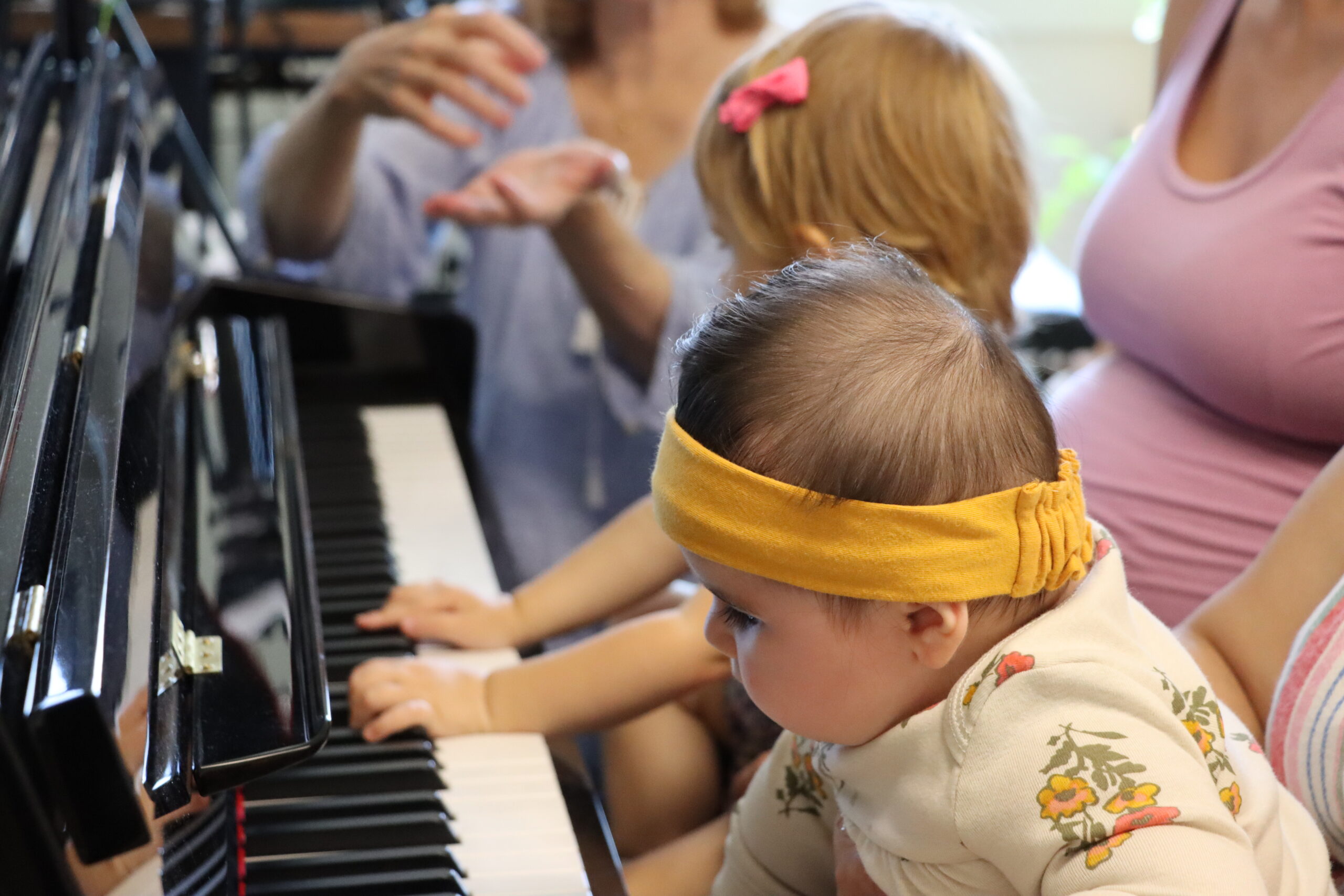
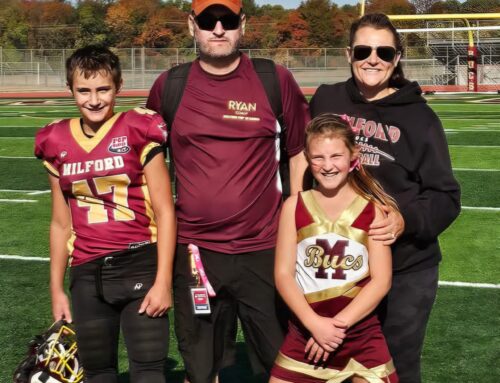
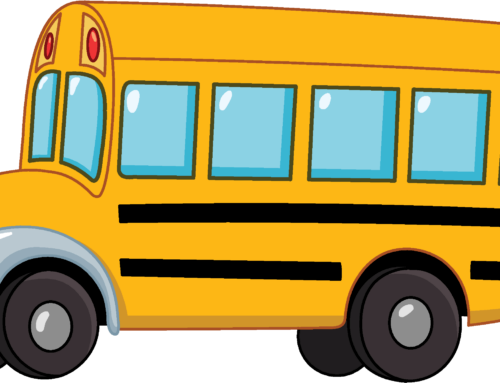

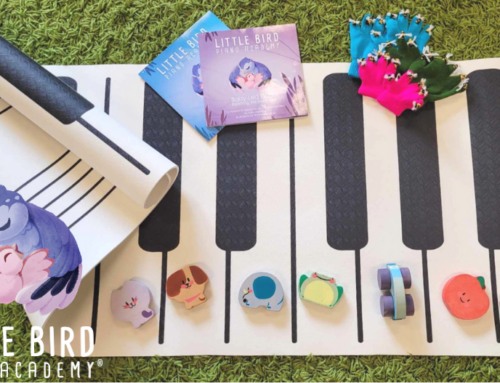
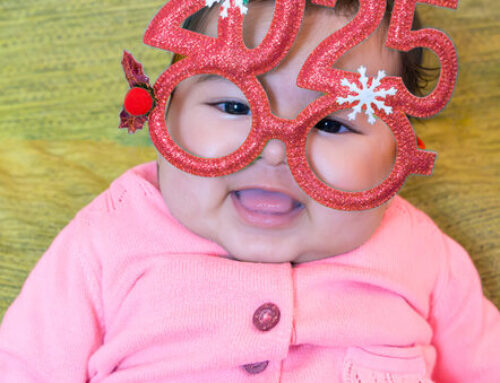
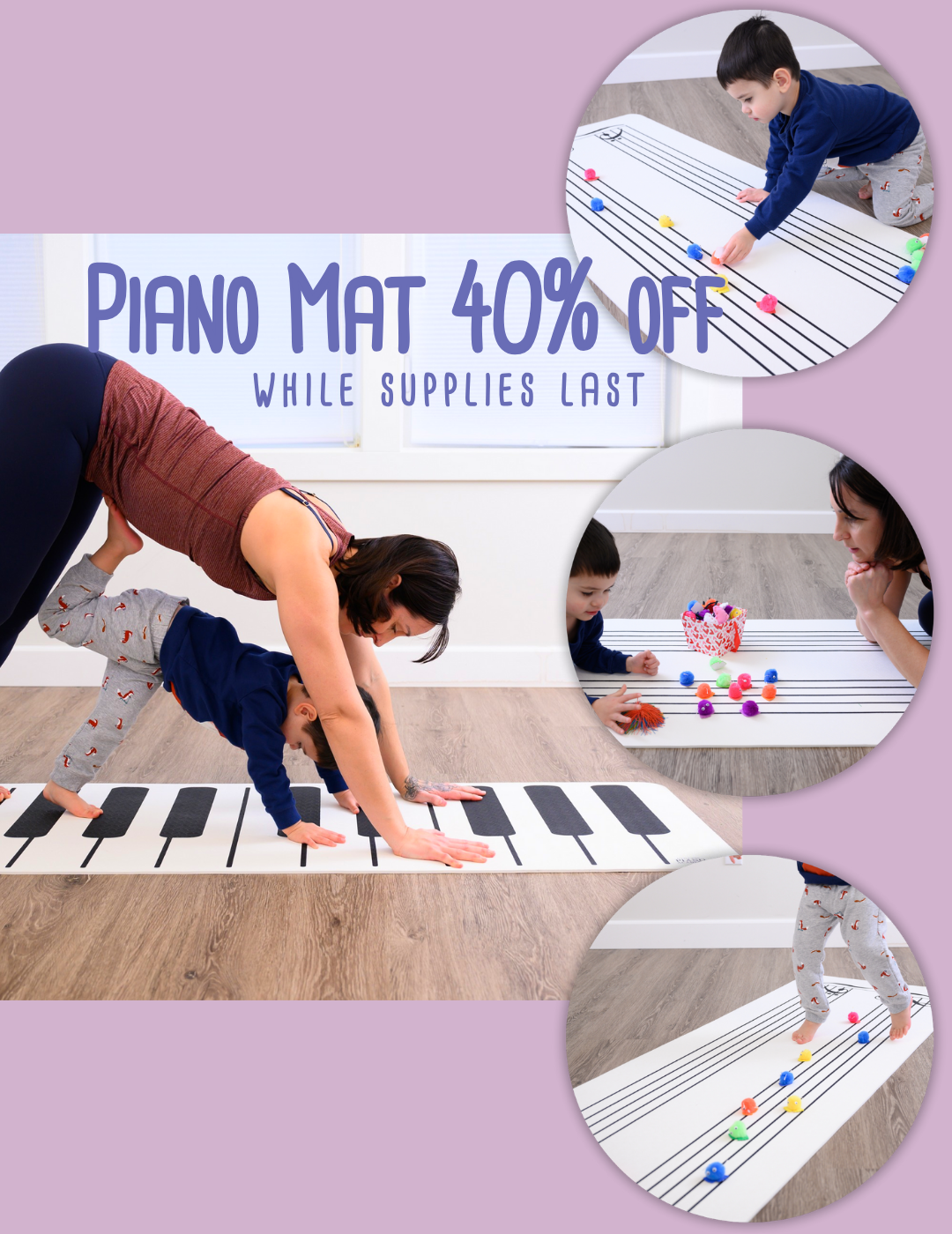
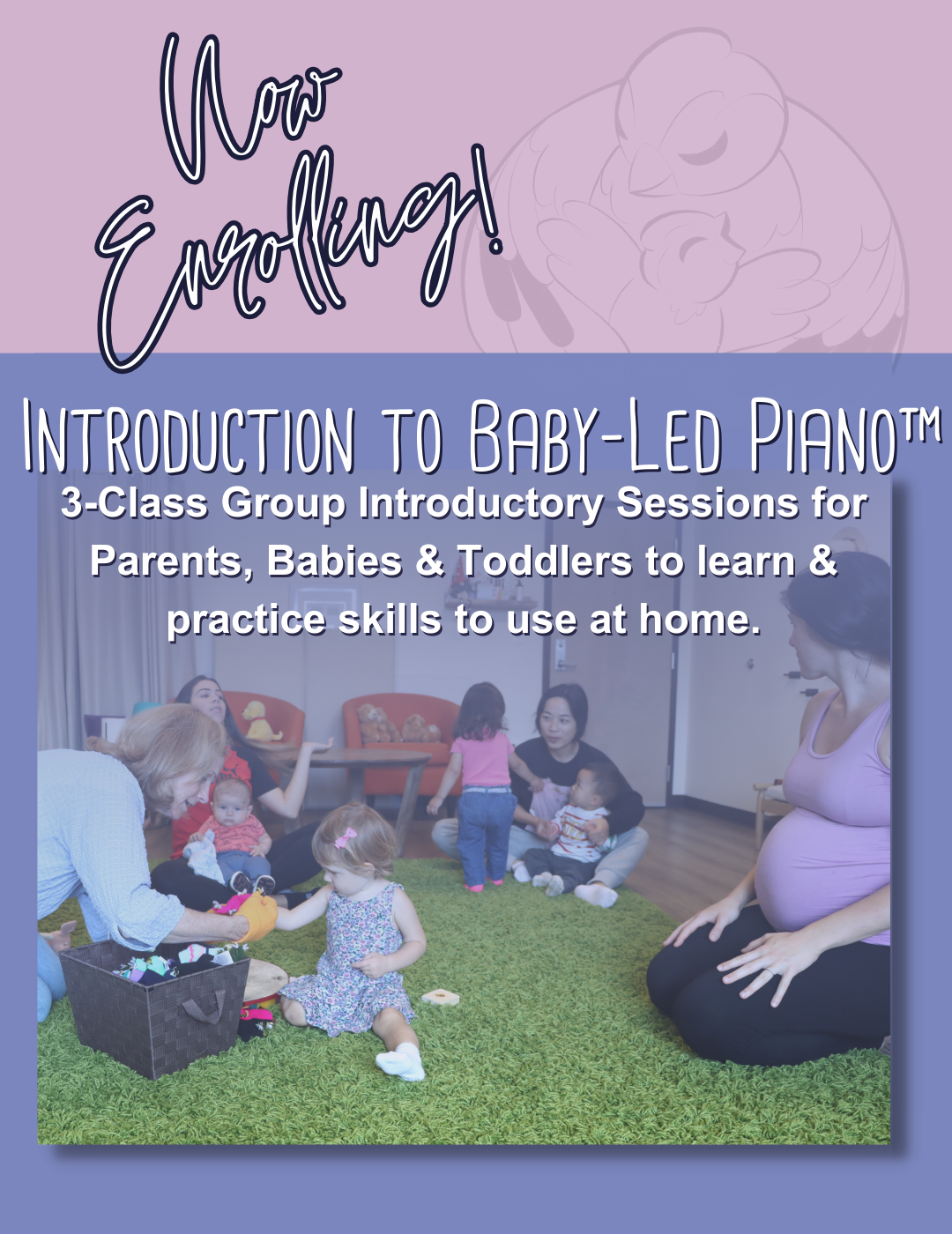
Leave A Comment